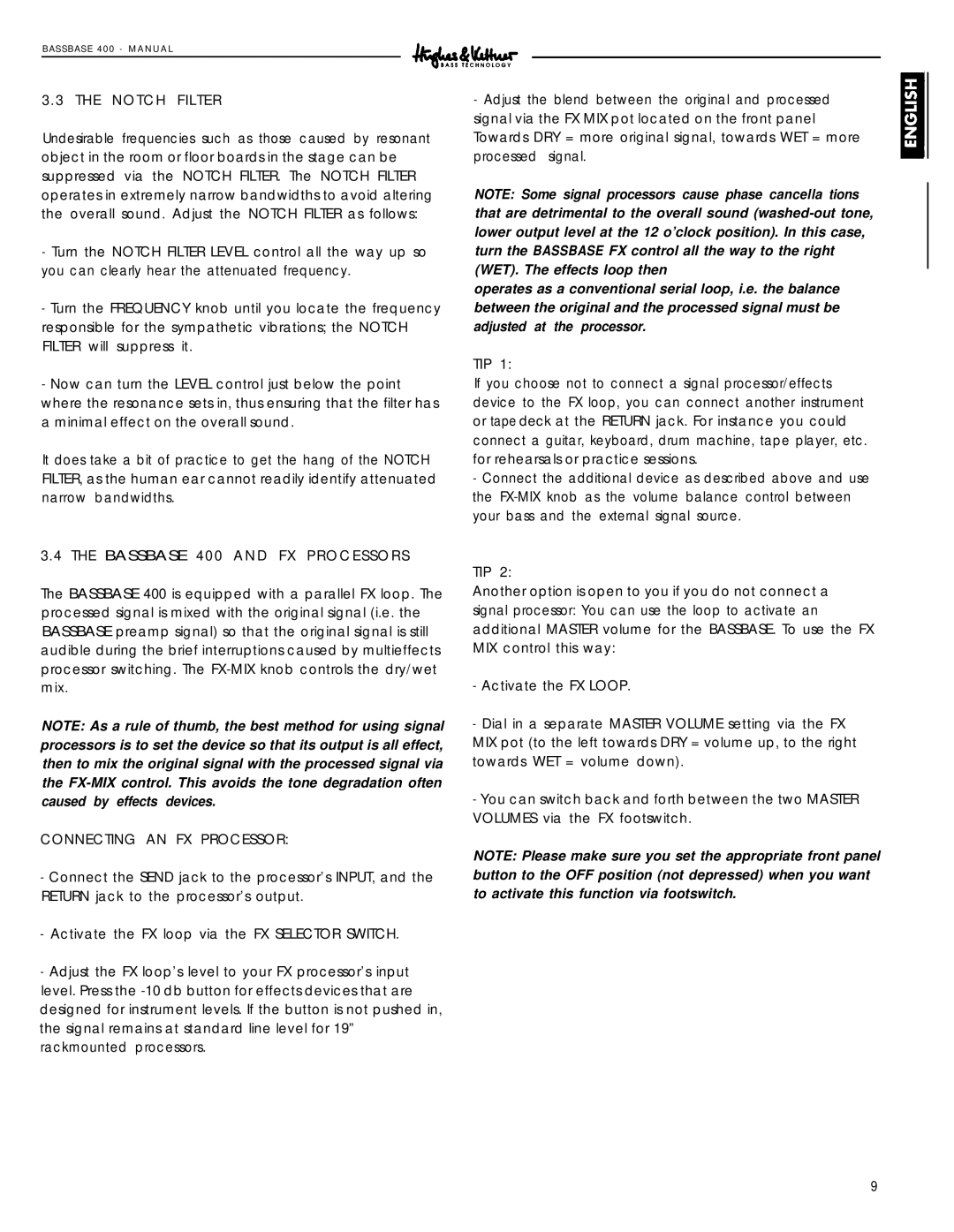
BASSBASE 400 - MANUAL
3.3 THE NOTCH FILTER
Undesirable frequencies such as those caused by resonant object in the room or floor boards in the stage can be suppressed via the NOTCH FILTER. The NOTCH FILTER operates in extremely narrow bandwidths to avoid altering the overall sound. Adjust the NOTCH FILTER as follows:
-Turn the NOTCH FILTER LEVEL control all the way up so you can clearly hear the attenuated frequency.
-Turn the FREQUENCY knob until you locate the frequency responsible for the sympathetic vibrations; the NOTCH FILTER will suppress it.
-Now can turn the LEVEL control just below the point where the resonance sets in, thus ensuring that the filter has a minimal effect on the overall sound.
It does take a bit of practice to get the hang of the NOTCH FILTER, as the human ear cannot readily identify attenuated narrow bandwidths.
3.4 THE BASSBASE 400 AND FX PROCESSORS
The BASSBASE 400 is equipped with a parallel FX loop. The processed signal is mixed with the original signal (i.e. the BASSBASE preamp signal) so that the original signal is still audible during the brief interruptions caused by multieffects processor switching. The
NOTE: As a rule of thumb, the best method for using signal processors is to set the device so that its output is all effect, then to mix the original signal with the processed signal via the
CONNECTING AN FX PROCESSOR:
-Connect the SEND jack to the processor’s INPUT, and the RETURN jack to the processor’s output.
-Activate the FX loop via the FX SELECTOR SWITCH.
-Adjust the FX loop’s level to your FX processor’s input level. Press the
-Adjust the blend between the original and processed signal via the FX MIX pot located on the front panel Towards DRY = more original signal, towards WET = more processed signal.
NOTE: Some signal processors cause phase cancella tions that are detrimental to the overall sound
operates as a conventional serial loop, i.e. the balance between the original and the processed signal must be adjusted at the processor.
TIP 1:
If you choose not to connect a signal processor/effects device to the FX loop, you can connect another instrument or tape deck at the RETURN jack. For instance you could connect a guitar, keyboard, drum machine, tape player, etc. for rehearsals or practice sessions.
-Connect the additional device as described above and use the
TIP 2:
Another option is open to you if you do not connect a signal processor: You can use the loop to activate an additional MASTER volume for the BASSBASE. To use the FX MIX control this way:
-Activate the FX LOOP.
-Dial in a separate MASTER VOLUME setting via the FX MIX pot (to the left towards DRY = volume up, to the right towards WET = volume down).
-You can switch back and forth between the two MASTER VOLUMES via the FX footswitch.
NOTE: Please make sure you set the appropriate front panel button to the OFF position (not depressed) when you want to activate this function via footswitch.
9
